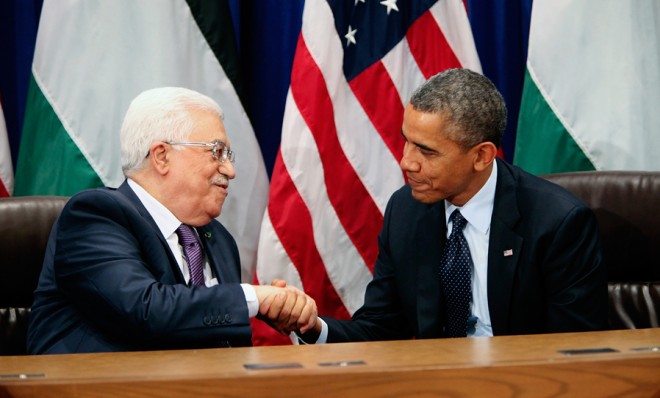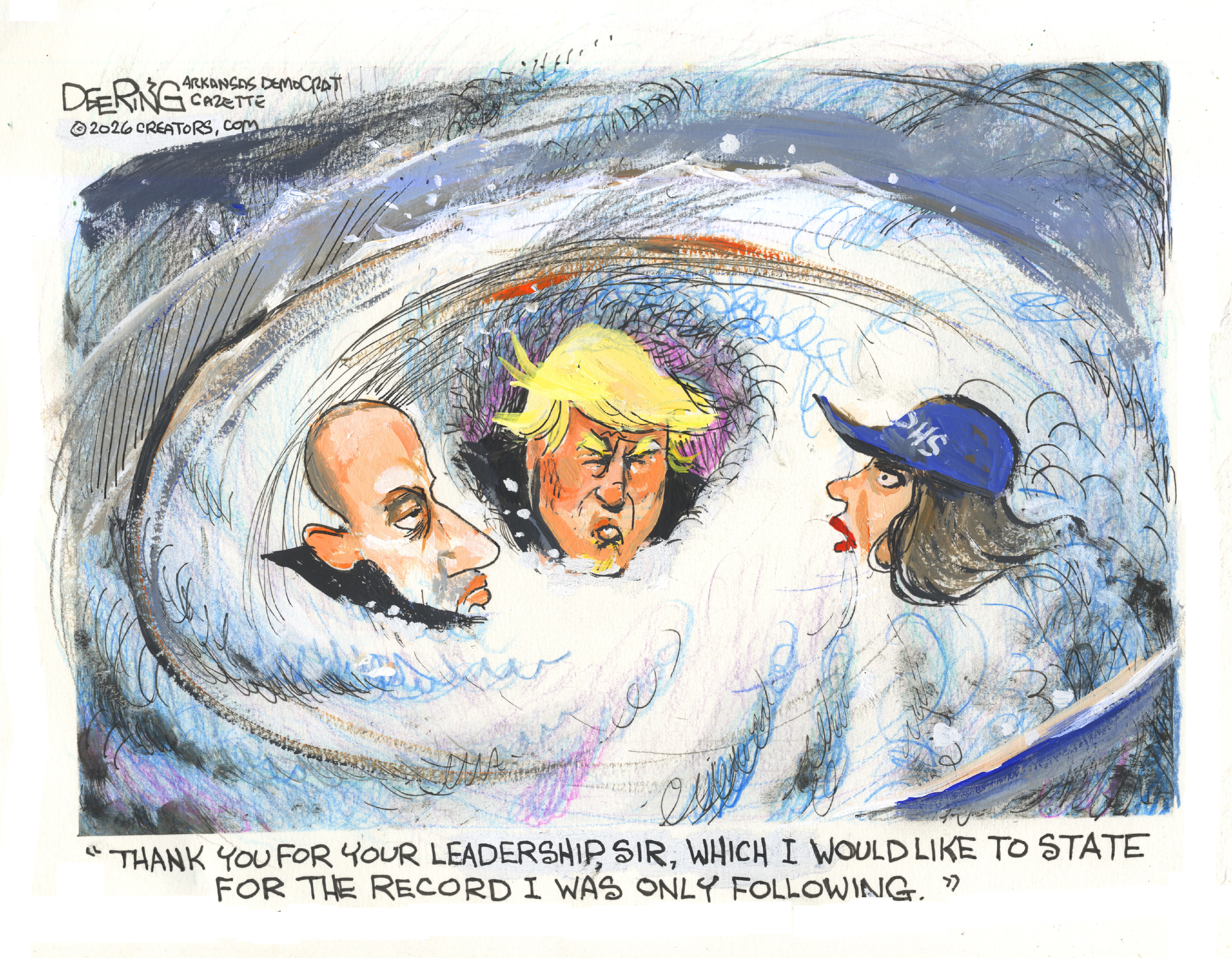Obama's U.N. speech: A new Obama Doctrine?
The threat of force takes a back seat to diplomacy


A free daily email with the biggest news stories of the day – and the best features from TheWeek.com
You are now subscribed
Your newsletter sign-up was successful
Americans, polls say, are souring on their nation's role as the world's policeman. President Obama's Tuesday speech to the United Nations General Assembly suggested that, after five years of mixed military experiences abroad, he, too, is growing more uneasy with the use of U.S. military might overseas.
That's not to say that he's stepping away from the crises roiling around the world. Obama committed to aggressive diplomatic pushes to prevent Iran from building nuclear weapons and to forge a peace deal between Israel and the Palestinians — two commitments that some experts expect to define his foreign policy for the remainder of his presidency.
Call it the evolution of the so-called Obama Doctrine, says David E. Sanger at The New York Times. In his first term, Sanger says, Obama's overseas policies were marked by a willingness to use force in cases where the U.S. faced a direct threat — but he was far more eager than his predecessor, George W. Bush, to avoid long, drawn-out conflicts with questionable national-security benefits.
The Week
Escape your echo chamber. Get the facts behind the news, plus analysis from multiple perspectives.

Sign up for The Week's Free Newsletters
From our morning news briefing to a weekly Good News Newsletter, get the best of The Week delivered directly to your inbox.
From our morning news briefing to a weekly Good News Newsletter, get the best of The Week delivered directly to your inbox.
Now, says Sanger, Obama has "absorbed some bitter lessons" about the limits of American power — most recently from the way his party deserted him over striking Syria, and before that by the way Libya descended into chaos after our bombing stopped. He insists he won't let Iran get nukes on his watch, Sanger says, but with the Obama Doctrine in flux and Obama's willingness to use force rattled by five years of mixed results, the question is "whether the Iranians believe him."
To Obama's detractors, Obama's foreign policy isn't evolving. It's "schizophrenic," says Elliott Abrams at The Weekly Standard. He appears all for freedom, human rights, and democracy, in principle, Abrams says, but, in practice, his willingness to cut diplomatic deals with tyrants offer nothing to people like the Iranians. He promises they'll be better off if their leaders go down the path of diplomacy, Abrams says, but in reality he's just leaving them at the mercy of a hated theocracy.
Not a word about living in freedom — not even as an aspiration. So the obvious conclusion any Iranian must reach is that if the regime does a nuclear deal, Mr. Obama is content to see the Iranian people live under tyranny forever. [Weekly Standard]
One shift in Obama's focus was unmistakable. The U.N. speech was almost entirely devoted to the Middle East — Obama only mentioned China once. That, says John B. Judis at The New Republic, means that Obama, who announced a "pivot to Asia" two years ago, has pivoted again, and plans to stake his foreign policy for the rest of his presidency on Iran and the Israeli-Palestinian conflict.
Pulling off a rapprochement with Iran, Judis says, could be the diplomatic motherlode, making peace possible in Syria, easing negotiations between Israel and the Palestinians, and giving the U.S. a new ally against terrorism. In that sense, Judis says, Obama might have just delivered the most important foreign policy speech of his career.
A free daily email with the biggest news stories of the day – and the best features from TheWeek.com
The danger of a turn back toward Realpolitik is that Obama will abandon even a declaratory attempt to promote human rights and the stirrings of popular rule in the Middle East. But in respect to Obama's willingness to deal with Iran and to throw America’s weight behind a resolution of the century-old Israel-Palestinian conflict, Obama's new turn could lead to astonishingly positive results in the Middle East. Jim Mann, the author of The Obamians, the best introduction to Obama's foreign policy, cautioned me the other day against accepting the image of second-term presidents as lame ducks. In foreign policy, Ronald Reagan and Bill Clinton achieved their greatest successes in their second terms, and the same may turn out to be true of Barack Obama. [New Republic]
Harold Maass is a contributing editor at The Week. He has been writing for The Week since the 2001 debut of the U.S. print edition and served as editor of TheWeek.com when it launched in 2008. Harold started his career as a newspaper reporter in South Florida and Haiti. He has previously worked for a variety of news outlets, including The Miami Herald, ABC News and Fox News, and for several years wrote a daily roundup of financial news for The Week and Yahoo Finance.
-
 Russia’s ‘cyborg’ spy pigeons
Russia’s ‘cyborg’ spy pigeonsUnder the Radar Moscow neurotech company with Kremlin-linked funding claims to implant neural chips in birds’ brains to control their flight, and create ‘bio-drones’
-
 Political cartoons for February 8
Political cartoons for February 8Cartoons Sunday’s political cartoons include going down the drain, American history, and more
-
 Touring the vineyards of southern Bolivia
Touring the vineyards of southern BoliviaThe Week Recommends Strongly reminiscent of Andalusia, these vineyards cut deep into the country’s southwest
-
 The billionaires’ wealth tax: a catastrophe for California?
The billionaires’ wealth tax: a catastrophe for California?Talking Point Peter Thiel and Larry Page preparing to change state residency
-
 Bari Weiss’ ‘60 Minutes’ scandal is about more than one report
Bari Weiss’ ‘60 Minutes’ scandal is about more than one reportIN THE SPOTLIGHT By blocking an approved segment on a controversial prison holding US deportees in El Salvador, the editor-in-chief of CBS News has become the main story
-
 Has Zohran Mamdani shown the Democrats how to win again?
Has Zohran Mamdani shown the Democrats how to win again?Today’s Big Question New York City mayoral election touted as victory for left-wing populists but moderate centrist wins elsewhere present more complex path for Democratic Party
-
 Millions turn out for anti-Trump ‘No Kings’ rallies
Millions turn out for anti-Trump ‘No Kings’ ralliesSpeed Read An estimated 7 million people participated, 2 million more than at the first ‘No Kings’ protest in June
-
 Ghislaine Maxwell: angling for a Trump pardon
Ghislaine Maxwell: angling for a Trump pardonTalking Point Convicted sex trafficker's testimony could shed new light on president's links to Jeffrey Epstein
-
 The last words and final moments of 40 presidents
The last words and final moments of 40 presidentsThe Explainer Some are eloquent quotes worthy of the holders of the highest office in the nation, and others... aren't
-
 The JFK files: the truth at last?
The JFK files: the truth at last?In The Spotlight More than 64,000 previously classified documents relating the 1963 assassination of John F. Kennedy have been released by the Trump administration
-
 'Seriously, not literally': how should the world take Donald Trump?
'Seriously, not literally': how should the world take Donald Trump?Today's big question White House rhetoric and reality look likely to become increasingly blurred
